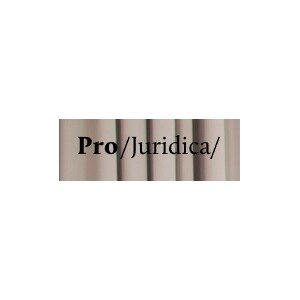Best Nonprofit & Charitable Organizations Lawyers in Jyväskylä
Share your needs with us, get contacted by law firms.
Free. Takes 2 min.
List of the best lawyers in Jyväskylä, Finland
About Nonprofit & Charitable Organizations Law in Jyväskylä, Finland
Nonprofit and charitable organizations in Jyväskylä, Finland play a crucial role in various social, cultural, and environmental activities. These organizations are primarily governed by Finnish law, which provides a framework for their formation, management, and operation. The legal structure supports various types of nonprofits, including associations, foundations, and social enterprises, each with specific legal requirements and obligations.
In Jyväskylä, a vibrant academic and cultural hub, nonprofits often engage in activities ranging from educational programs to environmental sustainability projects. Successful nonprofit and charitable operations require a solid understanding of relevant laws, which ensure their objectives are met and resources are utilized effectively and ethically.
Why You May Need a Lawyer
Engaging a lawyer can be crucial in several circumstances concerning nonprofit and charitable organizations in Jyväskylä, Finland:
- Establishing an organization: A lawyer can assist with drafting statutes, registering the organization, and ensuring compliance with Finnish laws.
- Governance issues: Legal advice may be needed to navigate board member duties, conflicts of interest, or restructuring processes.
- Regulatory compliance: Lawyers can help in understanding and fulfilling obligations related to fundraising, taxation, and reporting.
- Contractual agreements: Professional legal support is often required for drafting and reviewing contracts with partners, donors, or service providers.
- Dispute resolution: Legal intervention can help resolve conflicts with stakeholders, such as beneficiaries, employees, or external partners.
Local Laws Overview
The legal framework governing nonprofit and charitable organizations in Jyväskylä is primarily based on Finnish national laws. Key aspects include:
- The Associations Act: Governs the registration, management, and dissolution of associations, requiring a minimum of three founders and clearly defined rules.
- The Foundations Act: Regulates foundations, focusing on financial management and transparency, with strict reporting standards to ensure public trust.
- The Income Tax Act: Provides specific tax benefits and obligations for nonprofit organizations, crucial for financial planning and compliance.
- Data Protection Laws: The General Data Protection Regulation (GDPR) influences how nonprofits handle personal data, necessitating careful data management practices.
- Licensing for fundraising: Organizations must adhere to regulations concerning public fundraising activities, often requiring licenses or notifications to authorities.
Frequently Asked Questions
1. What is the first step in forming a nonprofit in Jyväskylä?
The initial step is to determine the type of organization you wish to establish (e.g., association or foundation) and then draft the governing documents like statutes or a founding charter.
2. Do nonprofit organizations have tax obligations in Finland?
Yes, while many nonprofits may qualify for tax-exempt status on certain activities, they are still required to comply with specific tax filings and obligations.
3. Can a foreigner establish a nonprofit in Jyväskylä?
Yes, non-Finnish residents can establish a nonprofit, however, they must comply with Finnish laws and may need to demonstrate a significant connection to Finland.
4. What are the reporting requirements for nonprofits?
Organizations must submit annual reports including financial statements to ensure transparency and accountability, as outlined in the Associations and Foundations Acts.
5. Are there any specific rules for fundraising?
Yes, fundraising activities must comply with the Finnish Money Collection Act, requiring certain approvals or licenses from local authorities.
6. How can a nonprofit ensure GDPR compliance?
By adopting robust data protection policies, conducting regular audits, and ensuring staff are trained on GDPR principles, a nonprofit can maintain compliance.
7. What legal liabilities do board members face?
Board members are responsible for ensuring legal compliance and proper management. They may face personal liability for negligence or misconduct.
8. Can a nonprofit distribute profits?
Nonprofits must reinvest any surplus into their mission-driven activities and cannot distribute profits to members or founders.
9. What is the role of the Finnish Patent and Registration Office (PRH)?
The PRH manages the registration of nonprofits and ensures compliance with legal statutes, playing a key role in organizational oversight.
10. How can conflicts within a nonprofit be resolved?
Conflicts should be addressed through internal governance structures initially, but legal advice may be necessary for mediation or arbitration.
Additional Resources
- Finnish Patent and Registration Office (PRH): Offers guidance on registration and compliance for nonprofits.
- Nonprofit organizations associations: National and local entities provide support and networking opportunities.
- Local Libraries and Civic Centers: Offer workshops and informational sessions on managing nonprofit organizations.
- University of Jyväskylä Law Clinics: Provide free legal advice to community members, including nonprofit managers.
Next Steps
If you require legal assistance concerning nonprofit and charitable organizations in Jyväskylä, consider the following steps:
- Consult with a specialized lawyer or law firm experienced in nonprofit law to gain a comprehensive understanding of legal obligations.
- Attend informational workshops or seminars offered by local organizations or universities to enhance your legal knowledge.
- Contact governmental bodies like the Finnish Patent and Registration Office for official guidance and resources.
- Join a professional network or association related to your nonprofit sector to receive ongoing support and legal updates.
Lawzana helps you find the best lawyers and law firms in Jyväskylä through a curated and pre-screened list of qualified legal professionals. Our platform offers rankings and detailed profiles of attorneys and law firms, allowing you to compare based on practice areas, including Nonprofit & Charitable Organizations, experience, and client feedback.
Each profile includes a description of the firm's areas of practice, client reviews, team members and partners, year of establishment, spoken languages, office locations, contact information, social media presence, and any published articles or resources. Most firms on our platform speak English and are experienced in both local and international legal matters.
Get a quote from top-rated law firms in Jyväskylä, Finland — quickly, securely, and without unnecessary hassle.
Disclaimer:
The information provided on this page is for general informational purposes only and does not constitute legal advice. While we strive to ensure the accuracy and relevance of the content, legal information may change over time, and interpretations of the law can vary. You should always consult with a qualified legal professional for advice specific to your situation.
We disclaim all liability for actions taken or not taken based on the content of this page. If you believe any information is incorrect or outdated, please contact us, and we will review and update it where appropriate.











